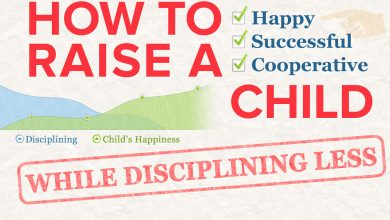
You can have the agreeable, respectful relationship you want
Type 4 children can be the easiest to parent—or the most challenging, depending on how you approach them.
In this episode, Carol and Anne share 3 mistakes that can cause sharp divisions between you and your Type 4 child. They give you tips that will help you forge deep parent/child bonds and a relationship of respect.
This week’s Parenting Practice
Listen to the 3 mistakes in this episode. Choose one and make the correction with the tips given. Go back to The Child Whisperer book and reread the Type 4 section, paying attention to the phases of development for your Type 4 child.
Transcript of podcast episode
Carol: If you are the parent of the Type 4 More Serious child, there’s a good chance you’re making one of these three mistakes without knowing it. So, pay attention so you can be mindful about what you can change so that you’re supporting your Type 4 child to create agreeable, close relationship with them. Welcome to the Child Whisperer podcast. I’m your host Carol Tuttle, author of the best-selling parenting book, The Child Whisperer. I’m with my cohost, Anne Tuttle Brown. Anne, read from The Child Whisperer book how we describe the more serious child.
Anne: “Constant, still, and reflective. They connect to the world intellectually and their primary need is to be respected by their parents and family members, to respect them in return.”
Carol: I want to qualify the stillness, and the constant quality. It doesn’t mean your child isn’t playful and has a lot of activity in their day. It means that there’s a quality of being able to get laser-focused and really zero in on things, and that they need a experience of solidarity in their day-to-day life that allows them to go within, and reflect, and just get still without so much movement around them..
Anne: Straight-forward and exact would be another great way to say it.
Carol: So, the first mistake that’s common that a parent will make with a Type 4 child is misinterpreting their desire for perfecting, and often it’s received as criticism, or correction. And, I can relate to that.
Anne: You may find yourself wishing that your child could just be more content and happy with the way things are, and not want to fix it or see the flaws in things, or want to perfect it. They could do this with themselves, with things that they’ve done: papers they’ve written, or pictures they’ve drawn or they could do it with their clothing, that it doesn’t fit, and it doesn’t look perfect, or they could do it with other people.
Carol: You could suggest you want to do an activity, or an idea for them, and they’ll come back with why it won’t work, or what’s at fault with it, or how it needs to be different. So, they seem disagreeable, and you just want to go, “Could you just say okay, let’s do that?”
In their mind, they’re not finding fault, they’re finding improvement.
There’s a way to coach them so that they can use this skill set appropriately on the things that matter and not apply it to the things that don’t. It can become a habit of theirs. They don’t even know they’re doing it or understand how it’s kind of a turnoff if they keep coming across as, “You’re so critical. You’re so disagreeable.” I know they don’t want that. They don’t want to be stereotyped as that.
So how do you help them use this to their benefit and to the people in their lives?
Anne: As a parent, you can ask yourself, do you listen or do you give feedback like, “Oh, just get over it”?
Some positive feedback would be, “How would you improve it? What would you want different?” Rather than, “Your such a perfectionist. Just get over it.” And maybe sometimes you don’t even need to offer any feedback. You just can listen.
Carol: In the case of them responding to any suggestions you’re putting out, they can learn how to say, “Well, I appreciate that feedback. Yeah, that’s something to consider,” to meet it with an affirmative first rather than what feels like a negative or resistance to say, “Hey, try this. It would really support me in our conversations. Even if you think there are ways to modify this, if you’d just respond to me and say, thanks for sharing that, I’d like to consider that. I have some other thoughts on it.”
Anne: This will be supportive tools when they’re married…
Carol: Oh my goodness, yes.
Anne: …because if, they’re going to be shutting their spouse down all the time.
Carol: Yeah, because their spouse will feel like they’re being corrected constantly.
Anne: Is there a time and a place where it would be appropriate? Because, a Type 4 is a bold energy, to come back at them boldly and say, “Stop,” and just tell them straight up, “Don’t talk to me like that.” Or, is it always better to approach it in a more like, I don’t want to say nonchalant because I think you need to be really clear with Type 4s, and explain why those responses aren’t supportive?
Carol: I think out of the blue, and if it’s in front of other people it would be very embarrassing to them, I think it needs to be a private conversation that you’ve set a time for to say, “There are some things I want to talk about…” We’re talking about a parent to a child conversation. This is a child that could be as young as five, six, seven, eight that’s learning language skills. I’d still do it privately, and I’d say, “I want to talk to you about some things and I actually would like your feedback at how we can make this better.”
That’s inviting the corrective ability they have. So, that’s how I would do it, and just say, “This is what it can feel like to the person you’re saying that to.” They may not be aware that they’re coming across this way. We recently had someone in our healing center who’s a Facebook group member share she had an experience with a coworker where she felt very confronted from her, and there was a lot of negative criticism that she would offer uninvited. And, she was able to work with this gal as the instructor. She was teaching nursing. And, it actually turned into an opportunity to talk to her about how to share her feedback. She was able to give her some insights and how she could come across to people, and interestingly, the Type 4 student was not aware that’s how she was coming across but could see that’s how it could be taken.
Anne: Probably has received a lot of feedback from people…
Carol: Yes. She was like, “Oh, wow.”
Anne: …like, “Oh, she’s so stuck up,” or, “She’s a know-it-all.”
Carol: It’s a turnoff to people, and she realized, “Oh yeah. Thank you so much.” She was very grateful for that feedback, and it was done in a way that it was supportive to her rather than calling her out or doing something that was shaming in response. So, just take the position of, “I’m going to assume they don’t know how they’re coming across, and their intention is not to turn people off or put people on the defense.”
Anne: This may not be the case for your Type 4 where they’re constantly criticizing outwardly, but you may notice that it’s happening inwardly.
Carol: They may be doing it to themselves.
Anne: Or in their head, there’s a lot of thinking of all the things that could be improved and not verbalizing it. And so I think a healthy practice would be to ask them questions, “How would you make it better,” to help them get it out and to express it. So, I think, again, these are communication skills that will serve them through their life. The Type 4 gets upset and they go into silent mode, so helping them be able to express those emotions in a healthy way where you can listen and support while they speak.
Carol: The irony is that they’re verbally silent, but their thoughts aren’t silent. Their thoughts are on overdrive at that point.
Anne: You probably have one or the other Type 4. One that’s very verbal and expressing outwardly, and one that’s more of an internal process. So, it’s something to just look into there.
Carol: We’ve got more “Child Whisperer” coming up right after this brief message.
Woman: What’s your mom uniform? Yoga Pants? Jeans and a T-Shirt? As a mom, you’re busy, and wardrobe isn’t high on the priority list. But, do you ever get tired of feeling blah about how you look? Carol Tuttle’s “Dressing Your Truth” program helps you create a personal style that works for you, for your budget, for your family, and for your life. You can look more pulled together in less time. All you need is a little know-how, and Carol can show you. Just sign up for a free account at dressingyourtruth.com.
Carol: The second mistake is in their very thorough nature and their ability to manage their life with a lot of responsibility, especially, it shows up very strongly in the things they care about. So if they really love school and are very thorough with their homework, responsible, they can be, kind of, just you assume, “They got this, and I don’t need to really check in there.
Because, a lot of times parents are making connections with their kids by advising them, reminding them to do things, coaching them, and your Type 4 child, if you do that, they’re kind of like, “Yeah. I know, I know. I got this.” So, you kinda get…
Anne: You don’t want to be overbearing or annoying in a way.
Carol: That happened to me where I realized then my son Mark’s ability to be so thorough and responsible, especially with his schoolwork, that I didn’t know how to connect to support him. And, I learned that the connection came through offering support with the assumption that he was doing well rather than it needing support to correct something. So, this is how it would’ve sound. “You’re doing a great job managing your schoolwork. Is there anything I can do to support you?” So, I was validating his responsible qualities, and being his own authority.
Anne: Because if you were to leave that part out and say, “Is there anything I can do to help you with your schoolwork,” he would assume that you thought he was stupid.
Carol: Yeah, there was something to correct him.
Anne: He’d be like, “No, Mom, I’ve got it covered.”
Carol: Well, I learned it because that’s what I was doing before.
Anne: Exactly. I remember this conversation. And, you’re like, “Oh, I’m just trying to help you. I just want you to know I’m there for you as your mom.” So, yeah. I think that those words, using that exact phrase in anything like, “You’ve probably already got this taken care of, but if there’s anything I can do to support you I’m here. How can I support you?”
Carol: The other big lesson I had with him is when there was something he needed to talk through or get off his chest kind of a thing.
And: Like, emotional support?
Carol: Yeah. He needed emotional support. Again, as parents we tend to start advising, coaching, giving feedback pretty quick into those conversations. And it dawned on me one day that he needed to figure it out for himself. That was actually the process he preferred, that he didn’t want me to give him feedback.
Anne: You’re a sounding board.
Carol: That’s all I was. So, then we came up with a guideline. Before he would start talking I would say, “So, is this something you just want to talk through and figure out on your own, and I’m here to support you in that and listen to you, or at some point do you want my feedback to help you in figuring out what you need to do with this?” See, the key phrase there was figure it out. That’s a mental process. That’s what they have to do to move through the emotional, the state of feeling with it, but their mind is still the operative factor in trying to come to an outcome of, “What do I need to do different, or how am I handling this situation?” They’re figuring something out. And, he would tell me, “No, I just need you to listen now.”
Anne: The Type 4’s are in their head a lot, and so just voicing it out loud is another way of working through their thoughts. And so that’s why that sounding board is really supportive.
Carol: Yeah. And you could start these as young as four.
Anne: Would you give time limits to those? Is that…?
Carol: I have because he can go pretty deep with it, and kind of extend the conversation. Two things that we would do. He’d say, “Can I talk to you?” And I’d say, “Yes.” And then he’d ask me, “What time?” Well, I gotta make sure I’m going to show up right on the dot because it’s like, “Okay. I’m going to follow up with you then.” And then I would say how much time I could support him with, and it created all this structure.
Anne: Yeah. I want to add something to our first tip about the criticizing. We talked about this tactic with the Type 2 questions as maybe limiting how many more suggestions they could give to perfect it.
Carol: That’s true.
Anne: And you could just, with open arms, say, “I want to hear two ways you would make that better.”
Carol: Yeah. What would you do differently?
Anne: There you go, you know? And then you can just meet there.
Carol: Let’s say they’re complaining about the family vacation. Rather than trying to like it or disciplining him for being too negative, that’s a great response. “Well, what would you do to make it better”?
Anne: That’s so funny that you say family vacation because my Type 4 nephew went on a road trip and he was like, “It’s going to be the worst week of my life.” And, his mom was like, “No it’s not. It’s going to be, it’ll be so much fun,” you know, just like…
Carol: Yeah. So she’s taking the route of, “No, I’m going to help change his attitude.”
Anne: Yeah. And he had a great time, but at that moment I think it would have built trust and rapport to say, “How would you make it better? I want to hear two ways you’d make it better.” Okay. Like, come up with some better…
Carol: I would find that as a very interesting…
Anne: “Not go.” But that’s not an option, so.
Carol: “No, we’ve got to go. But, how would you make this experience better?” I think that would be a fascinating setup to see what comes. Maybe they’d have a good idea, you know. You’d go, “That’s a great idea.”
Anne: And, as they need time to think about things when you say, “If you can’t think of it now, I want to hear two things by the end of the day.” And then they won’t bring it up again because they know they couldn’t just be like, “Oh, worst trip ever.” You’d be like, “Then tell me how you want to make it better.”
Carol: And then I’d be like, “How can you make it better for yourself?” Did he have a good time?
Anne: Yeah, he did in the end. He said there was a lot of driving, but he was like, “It was better than I thought it would be.” This is kind of a side note, but how can we make this more fun for Type 1, is a great question. How can I make this more comfortable? What would be for Type 3?
Carol: How can I support you in getting the result you want?
Anne: Yeah, that’s a good idea. And Type 4, “How could you make this better,” or some version of that.
Carol: Yeah. Those are good.
Anne: All right. Let’s go to the third mistake.
Carol: We’ve got to remember that for another podcast: Four important things to say to your child.
Anne: That’s right. Trying to soften their bold reactions. Type 4s have strong opinions. This kind of goes with the first one, but even more so just that boldness they come, and to be able to share it with more heart rather than so much logic in mind of being like, “Well, that’s the way it is.”
Carol: I have the perfect story about a bold response.
Anne: Okay. Let’s hear it.
Carol: It’s a common practice in our religious practice for a young adult to go on a two-year service mission. Mark, my son who is a Type 4, went to Slovenia, which is a modern-day country, but it’s former Yugoslavia, former Communist. It’s not an easy place to necessarily be an American and live for two years. The culture’s very distinct, it’s a very Type 4 culture. So, at the return of that opportunity and experience, they have a chance to speak to their congregation, and in his speech, he very boldly said, “I’m not gonna lie. It sucked.” And you’re like, “Okay, that was was bold.” I remember sitting there having that immediate thought of…
Anne: My face got a little flushed.
Carol: …”There’s my bold son. That was a bold commentary. Okay.” And then the Ecclesiastical leader I’m going, “Okay. Wonder how he’s doing right now. What’s he going to say?”
Anne: He followed it up with some very endearing thoughts of…
Carol: He was a Type 2, so he brought in some…
Anne: No. I’m saying Mark did after he said that.
Carol: Oh. He did qualify it.
Anne: Yes, he did.
Carol: He said, “Well, what I really mean is…”
Anne: I mean, and he is being very honest.
Carol: He was basically saying if you think this is going to be easy, it’s not. Be clear on what you’re choosing into, and that, no regrets. He learned a lot.
Anne: It’s funny, we talk about it now and he’s like, “Well, it did.” In his mind, it’s still like, “Well, yeah. I just said what I thought.” And, you’ve had these experiences with your kids, I know it, where it was so literal, “Yeah, but it just didn’t go over so well.”
Carol: Don’t be offended by it. That’s what I learned to do is not take it personally because if you’re offended by it and, like, at that moment I could have been like, “Oh no I’m so embarrassed.”
Anne: And feel like you had to do some clean-up work after.
Carol: No. I was like, “I’m not in charge of this.”
Anne: Especially at, I mean, he’s 21. He’s, you know. He’s…
Carol: Yeah. No, it’s like…
Anne: You’re not in charge of cleaning anything up when there wasn’t anything to clean up in that moment.
Carol: I didn’t have to go around and talk to people after. I’m like, “Okay. He’ll learn. He’s learning. Maybe he could’ve said it differently.”
Anne: Right. And, I mean, those are important skills to learn to share something with a little more heart or a little more empathy.
Carol: Yeah. But, if you take it personally you won’t be able to give feedback effectively because you’re going to come from and emotional place rather than a logical place, and they don’t, in order for a Type to hear you, you need to come from a logical place and why you want to make a change.
Anne: So, you could point out logically the effect of how those bold statements might cause others to feel, and give a reference, like, you could even flip it and say, “If someone were to say this to you, how would that make you feel?” Put them in the shoes of where their actions or their words may cause them to feel…who knows. Maybe they’d be like, “No, that would be fine with me.” But, maybe they’d be like, “Oh, okay. I can see.” Or, if you have a scenario where something was said more boldly or forcefully. That’s why the Type 4’s are told to lighten up, lighten up because they become so serious and so direct. So, what are a few more tips about how to help them learn those skills in a logical way?
Carol: Part of it is are they involved in anything in their life where they can execute these character traits perfecting something, make bold decisions, have more bold opinions. In our case, Mark is a recreational mountain bike racer at a very high level. Perfect opportunity for him to be bold and opinionated with other racers. I mean, it’s a tough pool of competition, and you’ve got to hold your own, and you’ve got now a huge opportunity for improvement in perfecting something.
Anne: Yeah. And with just the equipment alone, to have a really strong opinion on what’s the best, and to research that, and determine, like, have really strong opinions on something you’re an expert about, I think really does…
Carol: Yeah. Let them, where are they an expert on something where they are the authority, and what they’re saying is correct, so that they’re not trying to apply it to all these variables in life. Because, if they’ve been given a channel to express that and truly be the truth of who they are, they’re not going to be as vulnerable to doing it in other places that it can be disruptive or even seen as annoying.
Anne: Yeah. So, the mistake you might be making in regards to this tendency is trying to soften them up, trying to lighten them up, apologizing for them, or disciplining them using the word, “Don’t be so mean.” I’ve heard that a lot with Type 4 younger kids, like, “If you’re mean like that you’ll lose friends.”
Carol: Yeah. It’s not like they’re trying to be mean. You’ve got to consider the fact there’s no intention that they were trying to be mean, and that’s where these sort of general shaming phrases have no benefit to helping behavior…modify a child’s behavior. These are teaching…
Anne: Yeah. They’ll be like, “What was mean?”
Carol: These are teaching moments. Assume that there was no ill intent behind it, and there’s an opportunity to guide your child in choosing something different in a social setting. They are of any of the four types, and kind of need of support of developing social skills true to themselves because it looks different than a Type 1.
Anne: That’s why they avoid it because it requires more effort.
Carol: You don’t have to talk to everybody, and they need to understand their nature so that they develop social skills, that then they feel very, very comfortable in settings with their peer group. I’d also say that you can start this at a very young age. Is your Type 4 toddler the authority of some of their toys? Meaning, and this is what Jenny did with Seth. She let him pick out a certain number of toys that they put into a box that got locked. Nobody got to play with those but him. He got to be the authority of that set of toys. They were his. That is huge for a little three, four-year-old type Type 4.
Anne: He’s not worried about his little brother messing his stuff up and…
Carol: That’s right. And it’s saying, “You have a right to have your stuff that nobody gets to touch, and you’re the authority over it.” That’s a powerful message to a Type 4 to say, “I respect you. I respect those toys are yours that you have complete say over.”
Anne: That will build respect.
Carol: Do they have a division if they share a room that they get to control the space entirely in a certain portion of the room? Because they need to feel like they have ownership of things. They’re the authority of that, and that you respect that. And when you send that message of, “I respect you, and I respect you being the authority,” not of everything in their life. They don’t get to be the authority over what’s everybody eating for dinner. But, you see what I’m saying. You’re giving them enough of that experience.
Anne: Yeah. They’re going to have less of an, I don’t want to say less of an opinion. They’re going to not express those opinions so strongly in other areas when they’re able to fill that need.
Carol: You’re nurturing that trait in them in a healthy way so that it’s not, kind of, getting spread out over a bunch of places in life. And respect’s the foundation to a healthy relationship with a Type 4, and these are the ways that the message of, “I respect you,” is delivered to your child. That goes a long way, and it goes very deep. Which of these three mistakes are you currently making with your Type 4 child? Choose one of them, and make the correction with the tips we’ve given. Go back to “The Child Whisperer” book and reread the Type 4 section. Make sure you’re reading that every 6 to 12 months because you’re going to get more insights and aha’s because remember the book is written in phases of development. So what you were reading a year or two ago is not the same as the needs you need to address now if your child is older. Reread those sections. Be informed as a parent. These are relationships that can very quickly be disrupted, and that division can get created where your Type 4 child does not feel close to you, or this parent/child relationship can easily be nurtured into a deep and lasting bond.
Thanks for listening. For more support, go to thechildwhisperer.com where you can purchase the book, subscribe to our weekly parenting practice email, and find a transcription and audio of “The Child Whisperer” Podcast.
Woman: If you’re listening on I-Tunes, thank you for leaving a review. If you have a parenting question, please send it to [email protected].



